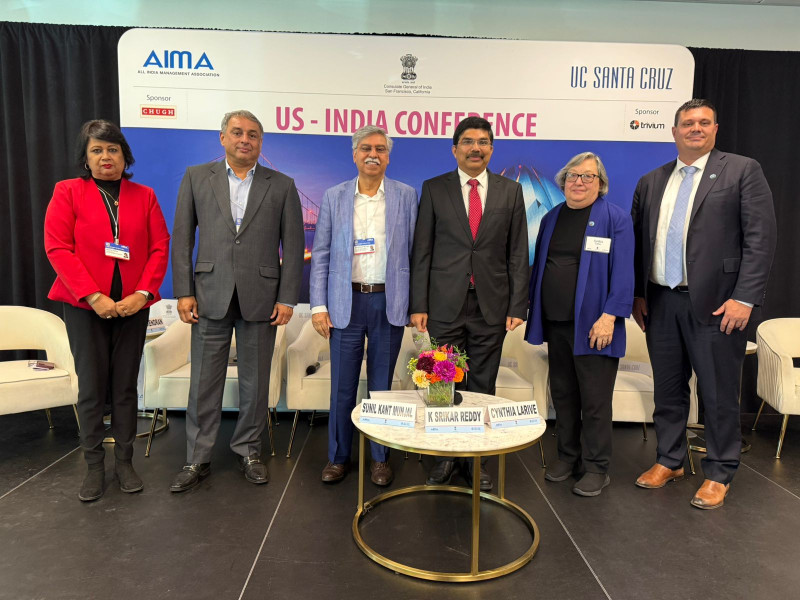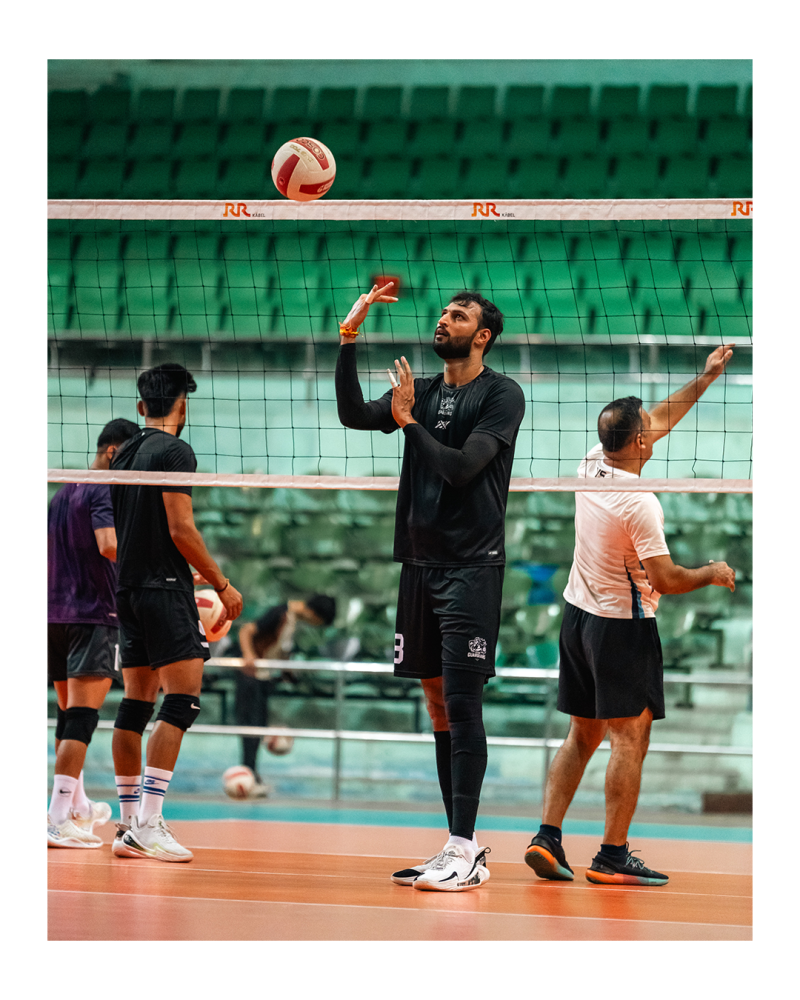The 8th US-India Conference, organized by All India Management Association (AIMA), was held at the University of California, Santa Cruz (UCSC), Silicon Valley Campus on 7 October 2025. The conference focused on the choice between normalization and reset in the US-India relationship. The event brought together leaders from government, academia and the industry to analyse the turbulence arising from recent tariff actions and trade pressures. Ms Cynthia Larive, Chancellor, UCSC opened the conference.
Dr K Srikar Reddy, Consul General of India in San Francisco, made a case for India as a uniquely credible and valuable partner for the US citing India’s economic and technological achievements. He highlighted the technological alignment between US and India giving the example of India’s $18 billion commitment to the Semicon India Mission and the NISAR satellite project, a 50-50 venture between NASA and ISRO.
Mr Sunil Kant Munjal, Chairman, Hero Enterprise, said that India needs to raise its current 6 to 6.5% GDP growth to 8% and build a knowledge partnership with the US, complementing trade with R&D and education. Mr TV Narendran, CEO & Managing Director, Tata Steel Ltd and President, AIMA, presented Indian industry’s perspective on the trade and tariff issues between the US and India.
In a panel discussion on the simultaneous proliferation of war games and peace plans and a growing tilt towards a balance of terror, Mr R Mukundan, Managing Director & CEO, Tata Chemicals Ltd, contended that the global friction is rooted in structural shifts, a trend toward inward looking policy combined with a zero sum mentality. Mr Nikhil Sawhney, Vice Chairman & Managing Director, Triveni Turbine Ltd argued that the current strain in US - India relations is a short-term phase influenced by domestic political factors. Mr Vishal Kampani, Vice Chairman and Managing Director J M Financial Ltd and Sr Vice President, AIMA, said that India seeks a multipolar world where it stands as an independent player while using trade to strengthen ties with all nations. Mr Navneet S. Chugh, Managing Partner, Chugh, LLP, said that India needs to maintain strong trade relationships with all countries to avoid being dependent on the political stance of any single power. Mr Vikram Chandra, Founder, Editorji Technologies Pvt Ltd, moderated the session. He argued that the long-held consensus on a liberal world order and an unshakeable US-India alliance are facing new scrutiny. The panel concluded that India’s future depends on becoming an independent player utilising its vast internal economy and using the “India plus one” strategy with all major geopolitical actors.
The conference included a panel discussion on setting global rules for AI, which also focused on India’s AI potential. Mr Ravi Rajamani, Managing Director & Global Head of Generative AI, Google, advised India to focus on applying AI and to use open source AI to overcome the deficit of cutting-edge hardware. He argued that the Large Language Models are likely to be replaced by a new multimodal architecture, which would allow India to enter foundational research and shape the next phase of the AI race. Prof Yi Zhang of UCSC highlighted the misalignment in the emerging AI models and argued for having AI auditing standards. Mr Vineet Agarwal, Managing Director, TCI Ltd and Vice President, AIMA said that India’s advantage in AI lies in its diversity and non-homogenous perspective on regulation. Mr Sharad Singh, CEO, Trivium said that India could be the Switzerland of AI by facilitating collaboration and transactions between the major tech companies, as it has strong relationship with all of them. Mr Arun Kumar, Managing Partner, Celesta Capital, highlighted the Indian government’s enthusiasm for being the catalyst of deep technologies. The panel concluded that India needs a dual strategy of developing a domestic stack while remaining closely affiliated with the Western tech market.
In a panel discussion on biohacking health with focus on the interplay between biotech, AI and health, Professor David Haussler of UCSC Genomics Institute pointed out that the current AI is not equipped to navigate biology, as it is not digitized yet. Professor Yi Zuo of UCSC Department of Molecular & Cellular Biology argued that current AI architectures are alien to the way brains work and fail to provide new, fundamental scientific insight. Prof Alexander Ioannidis of UCSC Biomedical Engineering department highlighted India’s large population as an opportunity to obtain the million-plus genomic samples needed to train robust algorithms. Ms Vinita Bajoria, Chairperson, NICCO Cables Ltd endorsed biohacking as an intentional lifestyle design to combat non-communicable diseases and the crisis in mental health. Prof Robert M Kaplan, Senior Scholar, Clinical Excellence Research Center, Stanford School of Medicine, moderated the discussion.
AIMA’s 8th US-India Conference concluded with calls for the US and India to review their priorities and work together to restore normalcy and highlighted the need for a high trust knowledge partnership grounded in shared R&D, technology exchange, and educational cooperation.


